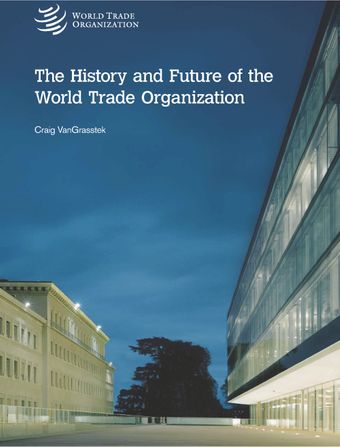Foreword

- De :
- Source: The History and Future of the World Trade Organization , pp 9-18
- Publication Date: juillet 2013
- DOI: https://doi.org/10.30875/bc58de3f-en
- Langue : Anglais
This book is a history in form but a biography in spirit. That term is technically inaccurate, as one cannot literally write the record of a life for something that does not live. To the extent that we can speak of the World Trade Organization (WTO) as if it were living, however, it is still young. In most of its members, the WTO would barely be of legal age to drink, drive and vote. It has nevertheless been around long enough to permit preliminary assessments of those events that have changed the composition of its membership and altered the ways that those members interact with one another. An underlying theme of this study is that the character of an international organization represents more than the sum of its parties, being the institutional embodiment of specific ideas and aspirations. The fact that the membership of the WTO is virtually identical to that of several other international organizations that deal with global economic issues does not mean that their members meet in these different institutions with identical aims or that they deal with one another in these forums in identical ways. In 18 years of practice, and in its inheritance from a half-century of the General Agreement on Tariffs and Trade (GATT) and two centuries of trade diplomacy before that, the WTO has received and developed a character that sets it apart from all other global institutions.
-
From This Site
/content/books/9789287042347c003dcterms_subject,pub_countryId-contentType:WorkingPaperSeries -contentType:Periodical -contentType:BookSeries -contentType:ReportSeries105


